
He's not wearing a mask, quick, kill him!
[Source]
Let's Adore Jesus-Eucharist! | Home >> Politics

He's not wearing a mask, quick, kill him!
[Source]
A few days ago, somebody I know sent a joke to many persons in her family and friends. It was a typical anti-Trump joke, the punchline being something that made Trump look like a mouth-breathing knuckle-dragging idiot.
The day after, I pulled that e-mail out of the trash, prayed, and tried to encourage them to use their brains, instead of just thinking the thoughts implanted in them by CBC propaganda:
On July 15th, 2020 at 17:26, Stefan Jetchick wrote: >> "Unbelievable. The fake media is at it again. >> I just saw something on TV that Michael [Angelo] >> died 450 years ago." :-) On the other hand, what is sad is to see all those Canadians who are mesmerized with Trump, while their own Democracy goes down the toilet... It would be better if they stopped listening to the CBC and started looking at what our own governments are doing with our rights and our constitution, under the pretext of "Fighting the crisis"... "We the People" have lost a lot of ground right here in Canada over the past few months, and the situation isn't improving... www.jesus-eucharistie.org/fig/en/polit/artic/ca_va/juste_un_masque.jpg SJJ
I thought it was a gentle reply. I didn't even try to defend Trump, just make those people notice things that the CBC doesn't want them to think about. Boy! Was I wrong! The flames I got, and from people who I consider to be polite and civilized! Can you imagine what a big hateful mob could do, if a few gentle sheep can become so hostile, so quickly?
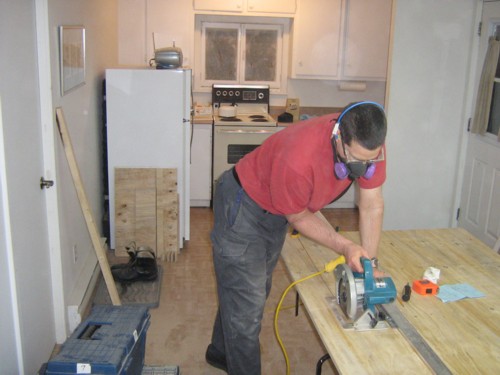
Stefan with a mask, safety glasses and earplugs.
[Source]
Had I known this collective hysteria was going to descend upon us, I would have carefully taken pictures of myself wearing a mask while taking care of Marie-Claude in the Palliative Care ward of the Jeffrey Hale hospital.
Why would I be against protection measures? I wear my seatbelt when I get into a car, I always start by putting on my eye protection when I open my toolbox, I regularly use a facemask with cartriges for dust, cartriges for VOC (Volatile Organic Compounds), etc. When I detect a real threat, and when I have real protection against that real threat, I don't hesitate to use protection measures.
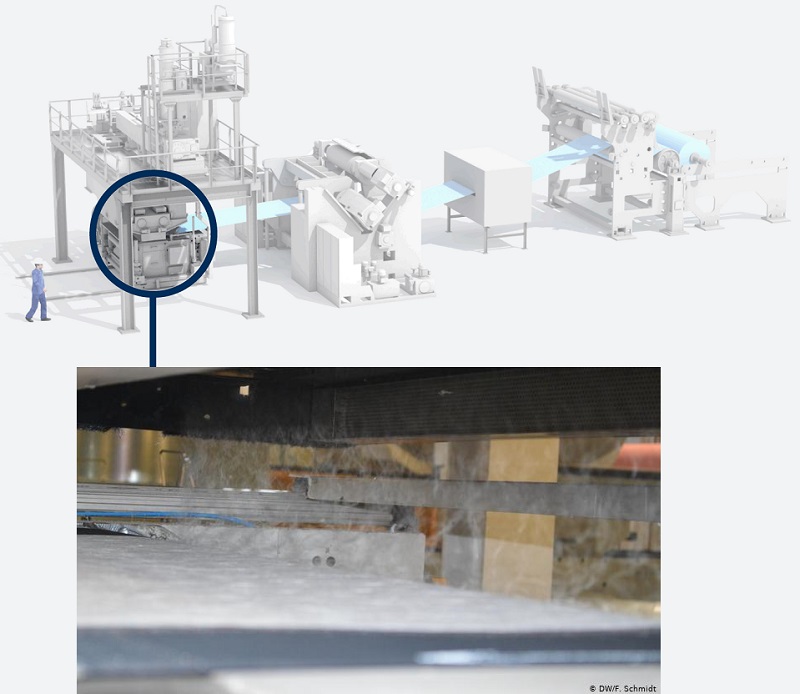
Huge and complicated machine producing very delicate and precise fabric.
[Source]
If I were to really try to protect myself against a virus, I would use the following system. First, I wouldn't just grab any old rag, made of unknown fabric with unknown properties, a rag that is as likely to stop viruses as my underpants are likely to stop the stink of my farts. I'd use actual tested, certified masks that are made with high-tech fabrics. The machines that make them cost many millions of dollars, and buying the machine is the easy part! Then you have to tweak the settings so the machine won't produce "optical illusions", a fabric that looks good but that is actually full of big holes like swiss cheese. But even if your fabric is perfect, there are more problems:
Although it is already very fine, this nonwoven net would still be far from sufficient to screen viruses out of the air, simply because they are so minute. The openings in the filter material are about one hundred times as large as the virus, with its 0.12 micrometers. So the engineers use physical tricks [...]
"One is diffusion caused by Brownian molecular motion, combined with inertia. The particle attaches to the surface as it travels through. It hits a filament and gets caught on it because of frictional or intermolecular forces," [...]
But that still wouldn't be enough to filter viruses out of the air. The engineers benefit from the fact that viruses usually have greasy surfaces. "Polypropylene is lipophilic, which means fat-attracting. Any medium that is greasy on its surface will attach itself very easily to these substances."
But even that would leave a lot to chance. So Frey and his colleagues do more to help the filtering process: "We have to introduce an additional force that separates the viruses and draws them in. These are electrostatic forces, which we are currently using extensively." These forces are used as follows: During production, the finished fleece runs over a grounded roller. On the other side, there are numerous high-voltage electrodes. "A relatively simple technology but very effective," says engineer Frey. "Thirty kilovolts are applied and a small current flows through the ionized air." Afterwards, the fleece feels like an electrostatically charged mop, like the ones for dusting that can be bought in many drugstores these days. The filter material works the same way as they do.
"So I put an electrostatic charge into the product, have a certain polarity and can then use it to exert forces — and here comes the limitation — on particles that are somehow conductive. But as long as there's water, they're conductive," Frey says. This would apply to aerosol droplets that somebody coughs out, for example. As long as the viruses are already attached to those droplets or swimming in them, the filter catches them, even if they are tiny.
This means, however, that viruses floating freely in the air could theoretically still
pass through the filter if none of the other physically effective forces hold them
back. But in practice, this is probably the exception.
[Source]
Here is an example of real respiratory protection:
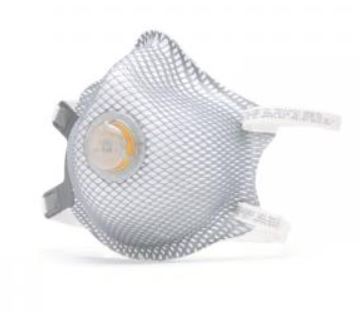
Moldex 2310 N99 Premium Particulate Respirator.
(Note exhalation valve, which means others are not protected from your germs,
but you decrease your probabilities for fatigue, hypoxemia and hypercapnia.)
[Source]
But that's not all. I'd have one for every day of the week, each in a paper bag identified with a weekday. At each end of day, I'd put today's mask back in its bag, and the next day use the mask in the next bag. So each mask gets unused 7 days, and since viruses supposedly last only 2-5 days, each morning I'd have a disinfected mask. I wouldn't re-use the same crummy and dirty mask for weeks on end!
Wait, the system continues! Since viruses enter easily through the eyes, or so I've been told, I'd wear these goggles in public at all times:
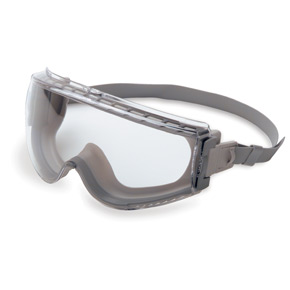
Uvex Stealth Safety Goggles (S3960HS).
[Source]
So when I see hords of sheeple in a hurry to slap on any rag on their faces, I have doubts. Many doubts, and many, many questions.
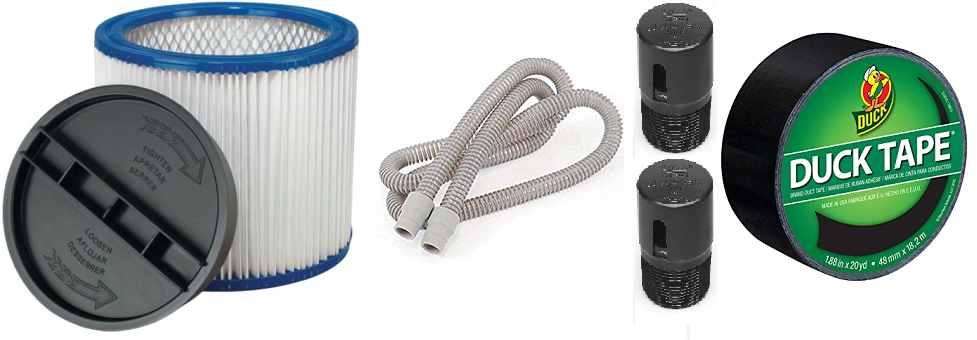
Materials for an improvised mask.
Being an inveterate tinkerer, if I had to make a mask quickly and inexpensively, how would I do it? First, I would repeat my usual disclaimers, adding that I am neither a virologist nor a respiratory protection engineer. Then, there is a plethora of articles on the internet about this, like:
Aerosol
Filtration Efficiency of Common Fabrics Used in Respiratory Cloth Masks
Many
articles on DIY masks on www.smartairfilters.com
A
rapid systematic review of the efficacy of face masks and respirators against
coronaviruses and other respiratory transmissible viruses for the community,
healthcare workers and sick patients
etc...
Offhand, from what I understand:
- Just about any material can filter any size particle, if you pile it up thick enough. What's difficult is to filter, while respecting what little muscle strength we have to suck in the air.
- The fastest and most effective way to nullify any filter is a bad seal between the face and the mask. Leaks are even worse in the case of an improvised filter. Indeed, at equal filtration efficiency, a DIY filter will be much more resistant to the passage of air than a real filter. So the air will have an even greater tendency to take the path of least resistance, and to bypass the filter and go straight through the shortcut offered by the leak.
In a life or death situation, and having only access to a regular hardware store (which of course would not have a single mask left in stock), I would purchase the biggest and highest-quality HEPA cartridge filter for shop vacs, a piece of flexible hose, two check valves, and duck tape. My mouth could make a perfect seal with the hose, the huge canister filter could be attached behind me, to my backpack, and the duck tape would make the connections. The two check valves would be as close to the mouth as possible, and rigged so that when you inhaled, the air would have to pass through the filter, and when you exhaled, the spent air and moisture would "fall out" directly toward the ground, without going back into the filter.
Apparently, many HEPA filters are made of fiberglass, and so you might suck up small particles of glass, but according to some articles, that wouldn't be catastrophic. In addition, the more a filter resists the passage of air, the more it must have a large surface to facilitate breathing. It therefore seems logical to hang this immense filter somewhere other than at the end of your nose.
End of the interlude!
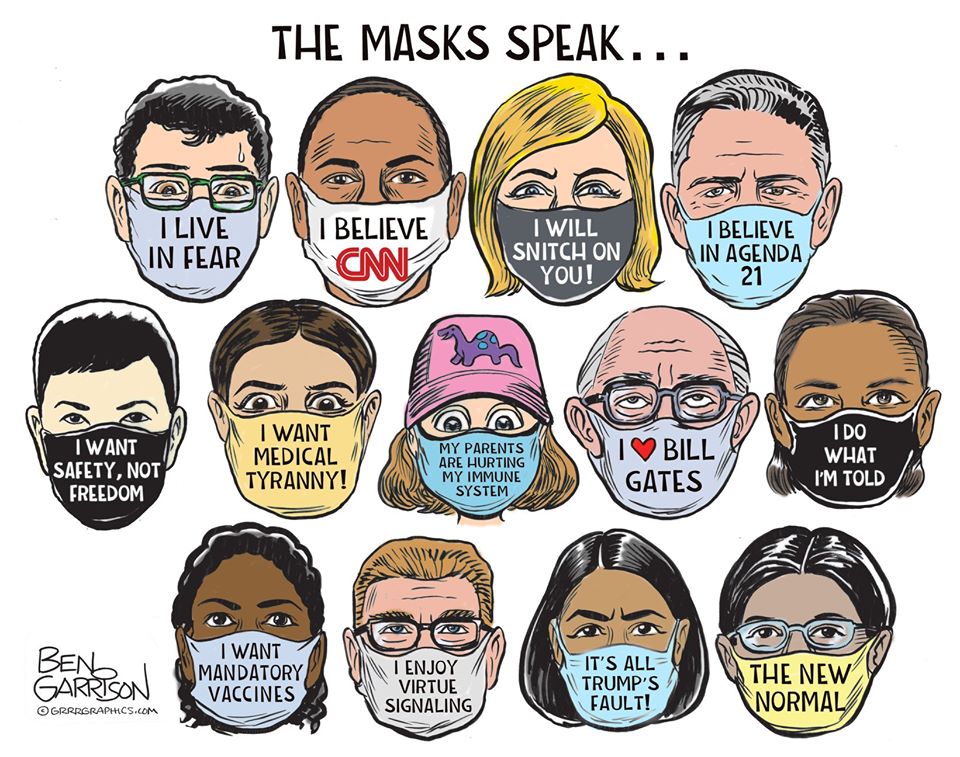
[Source]
Recently (I'm adding this mid-April 2021) an apparently serious article was published on the effectiveness of face rags to slow down the spread of Covid-19. Apparently, they are pretty useless:
Facemasks in the COVID-19 era: A health hypothesis
Baruch Vainshelboim
Med Hypotheses. 2021 Jan; 146: 110411.
PMCID: PMC7680614
PMID: 33303303
[www.ncbi.nlm.nih.gov/pmc/articles/PMC7680614]
I thing facerags are mostly a religious symbol. Their purpose is to be a visible sign of who are the "infidels", and who are the true believers.
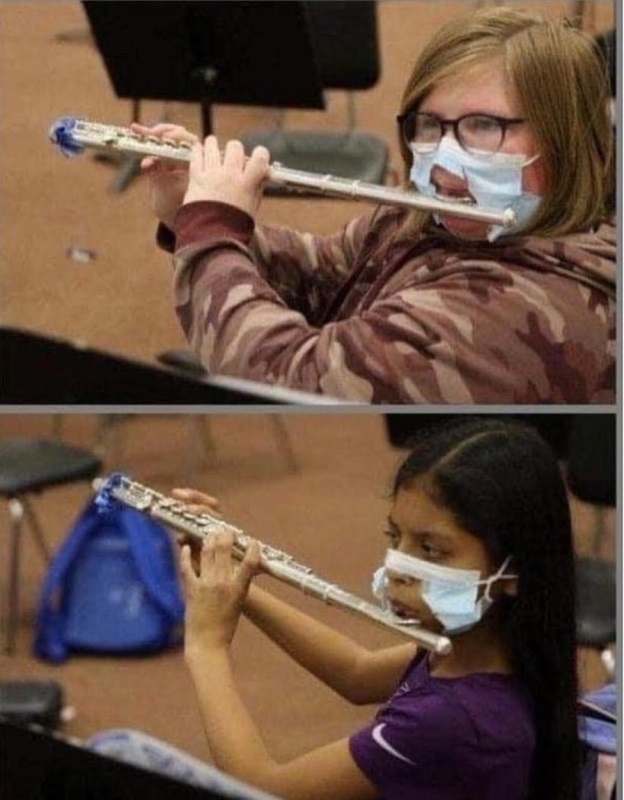
Facerags are NOT a religion? Please explain this to me.
[Source]
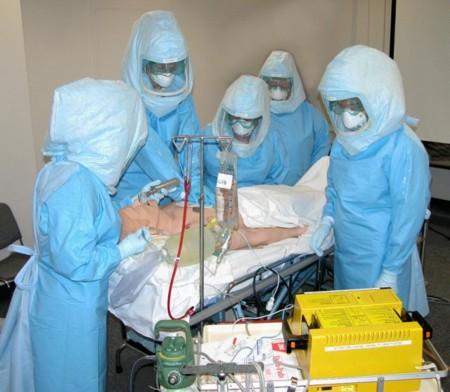
Serious professionals, with serious protection against viruses.
[Source]
Every time I stumble across some physician or pharmacist or other health professionnal, I ask them the same question:
Have you heard of someone who died of Covid-19, who was under the age of 60 and who had no co-morbidities?
Their reaction is always funny. They suddenly become more discreet, look around to make sure no one is listening, and confess that they haven't.
Another funny aspect is the idea that Covid-19 is supposedly so horrible, so dangerous, so scary, that you have to get tested to find out if you've had it. When I think of my sister Élizabeth who died of brain cancer, or my dear Marie-Claude who died of Amyotrophic Lateral Sclerosis (ALS), or my Father who died of a cerebral aneurism (and bowel cancer, and heart disease, pick what you want, it's like a menu at McDonalds!), I laugh imagining that these people would have been so happy to have a disease so insignificant that they could not have detected it by themselves!
I've seen statistics here and there (supposedly) on the actual Covid-19 infection rate. If it's true, it's no more deadly than a big annual flu.
Am I scared of Covid-19? Less and less. Am I scared of a bloodthirsty mob, whipped into a fury by Mainstream Media propaganda, ready to drag to the guillotine anybody who dares ask questions about what the government is shoving down our throats? Yes. Afraid. Very afraid.
I wish I could invent a mask that would protect us against irrationality!
Let's Adore Jesus-Eucharist! | Home >> Politics